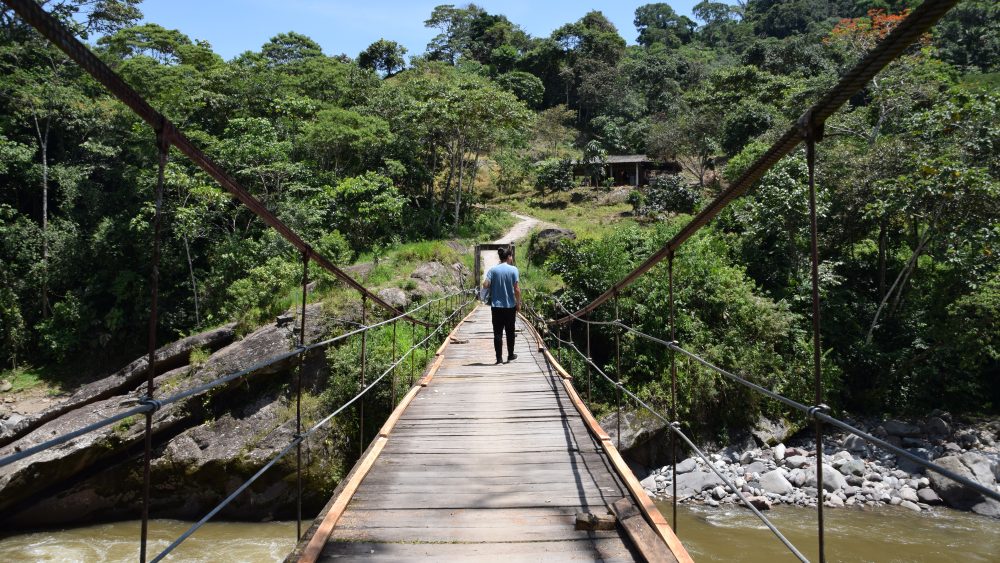In this blog post, Lund University Master student Juan Samper briefly summarises his thesis research in the Putumayo region of Colombia. The thesis is publicly available (link below).
Written by Juan Antonio Samper and Torsten Krause, Lund University
Five years into the present peacebuilding cycle in Colombia, violence is increasing again across the country, but particularly in rural areas that were also previously affected by the armed conflict. In the Putumayo department, conflicts between the state, armed groups and local communities persist. For decades the Putumayo has been the scene of social conflict between armed groups seeking control over strategic portions of land for narcotrafficking and military advantage. Since the peace agreement between the FARC-EP and the Colombian Government was signed in 2016, the violence between different armed groups, including FARC dissidents, and the Colombian armed forces as resurged, but increasingly as a socio-ecological conflict, centered around access to and control over land and natural resources.
One of the most horrific new manifestations of this wave of violence is the steep increase in threats, attacks and assassinations of social leaders who defend human and indigenous rights, and in many cases also the environment. In the Putumayo alone, more than 67 social leaders have been murdered since the peace agreement was signed in 2016. Many more have been victims of other types of aggressions or receive death threats continuously, forcing leaders to live in hiding or to flee to more secure localities. The reason behind these threats vary. Social leaders fight for the recognition and protection of their communities’ collective rights and ways of life, and they oppose armed groups and report their presence and activities to the authorities. Social leaders also support projects and processes connected to the peace agreement like the rural reform and substitution programs for illicit crops, mainly coca. In their own words, social leaders defend the territorities they are culturally and often spiritually connected to.
But who is a social leader? What is the defense of the territory? How do social leaders defend the territory? And what are the implications of the violence against social leaders for the defense of the territory? These are the questions that I set out to investigate in this ethnography supported by the Nature of Peace project.
I found that the key characteristics that determines who a social leader is, is the recognition of their roles by their social bases, the people they fight for and who they come to respresent. As for the defense of the territory, I found that it is a form of collective action that unites the place-based struggles of communities who share histories of marginalization and dispossession, who aim at improving their material conditions such as fighting poverty, accessing land and protecting the environment and human rights.
The role of social leaders in the defense of the territory is significant. They craft narratives and unite struggles while recognizing the differences and, particularly relevant in the pluricultural Putumayo, the tensions within the different ethnicities and social groups who inhabit these territories. Furthermore, they mediate between their communities and external actors (for instance the regional or national government), expose the interests and (in)actions of the latter, actively push for land redistribution and titling processes, and denounce violations of human rights and environmental degradation in their territories.
In the conclusion of my thesis, I argue that the implications of the violence against social leaders can be interpreted as the production of oblivion and detachment. These quintessential forms of political violence imply the invisibility and historical irrelevance that many communities have been subjugated to by imposed forms of development and armed conflict. Therefore, to protect social leaders is to protect collective memory and the attachment that communities in the Putumayo, and all around Colombia, have to their territories. The implications of this systematic silencing of social leaders in Colombia begs further investigating whose interests does the production of oblivious and detached communities serve, the extent to which transformative pathways to peace, democracy and sustainability are foreclosed with the silencing of social leaders, and the forms of resistance in defense of the territory that emerge in response.
Interested in reading the entire thesis? Click here (link to Lund University Library).


Stella Terjung
Thank you for providing such an interesting read. A great contribution, right at the intersection of collective rights, nature and the peace process in Colombia.
Gabriel Hernández Salame
To “seek and destroy” social leadership has been the strategy of totalitarian regimes to take control over the capacity of communities to develop autonomy and self government. To protect social leadership is a must for the construction of a true democracy. Thank you, Juan Antonio for your contribution to the study and understanding of these topics.